Animals add a lot of value to the homestead. They provide companionship, food, furs, and more. However despite all the benefits, animals are a lot of work.
If you’re contemplating bringing a new animal home to the farm, there’s a lot to think about first. Animals should never be an impulse purchase. You shouldn’t just go pick up a milk cow, a pig, or even a dog without first considering 12 “must know” facts that you’ll find below.
1. Can You Afford to Take Care of This Animal?
From feed and supplements to milking supplies and unexpected visits to the vet, animals can be expensive. Before you bring home a new animal, take an honest look at your financial situation. Can you afford this creature after it’s yours?
If you aren’t sure exactly what everything will cost, try making a list. You can call local vets or feed stores to help make your numbers more accurate. Here are some expenses to consider:
- Initial purchase price
- Feed (hay, grain, treats, etc.)
- Supplements (salt, minerals, etc.)
- Supplies (varies based on animal, but could include)
- Leash, collar, halter, lead rope, etc.
- Milking pail and stool
- Cleaning and sanitation supplies
- Clippers or shears
- Buckets
- Waterers
- Hoses
- Heat lamps
- Vet visits
- Annual check-ups
- Any required vaccines
- Emergency care
- Hoof care
- Shelter
- Fences or pens
Of course, you can always look for second hand supplies, and try to cut costs in many ways. But, at the end of the day, if you aren’t able to afford the care and keeping of an animal, it’s best not to bring it home. No matter how good of a deal you can find.
2. Do You Have the Land Bandwidth?
Animals, even small animals, require space. Do you have the room they need? Will your land support another animal now, or do you need to implement rotational grazing or other practices to improve your pastures first? The last thing you want to do is overgraze your land and find it in shambles.
Will this animal be free ranging, tied out, or in a structure? Do you have your fences built and shelters constructed? Don’t bring an animal home without being ready—temporary arrangements often just make everyone miserable. Take care of the to-dos first, and make sure your animal has a comfortable, safe environment to come home to.
Your plans may change over time, and that’s okay. You’ll have a place for the animals to call home while you rearrange. Our chickens are currently free-ranging, but we’re planning on enclosing a large run for them this year.
We’re tired of searching high and low for eggs, and also of stepping in poop. Building a run will give them the benefit of being outdoors, and allow us to not have to watch our step every time we head outside. They love our lawn too much! Here’s one of our roosters strutting his stuff right outside of our house.
It’s also important to think about land space for feed. Will you be growing food for your new animal? Do you have the space and equipment needed to do so? Do you have fields set up to grow vegetables to supplement the diet? Or will you be buying all of the feed? If you’ll be purchasing it, make sure you have local suppliers lined up ahead of time.
3. Do You Have Time?
Think about the time commitment your new animal will require. Even if they just need feed and water a couple times a day, that’s time you’ll have to spend. When you factor in longer chores like milking, cleaning pens, or training, along with the daily chores, do you have the time?
Does your schedule allow consistent time for animal chores? Most animals prefer to eat on a regular, predictable schedule. Here’s one of our Dexters, munching away on some hay. If we don’t feed him on time, he lets us know by bawling and causing a commotion. It’s much better to keep him happy with some hay on schedule!
If you’re buying a milk cow that’s currently in milk, be sure to find out when she’s used to being milked. While you can change the milking routine, you’ll want to do so gradually over time. Your cow’s milk production can suffer otherwise, and she’ll be prone to mastitis.
No matter what species you’re thinking about adding, take a close look at your schedule before bringing any home. Make sure you (or someone else) will be around to take care of the new addition. Oh, and if you’ll be adding a milking animal to the mix, remember that milking sessions the first few weeks WILL take longer. You and the animal both need to get used to a new routine.
Also, it’s a good idea to stick nearby the first few days, in case your new animal tries to escape. They will almost certainly try. And, they’re all pretty good at finding holes in fences.
4. Have You Done Your Research?
Even if you know you have the money, land requirements, and time for a new animal, you still aren’t quite ready to go out and buy one. You have to do your research first. Otherwise, you could end up with an animal that’s not a good fit for your farm.
Let’s say you want to buy a milk cow. Do you know what breeds of cows are best suited for your area and climate? Do you know how much milk you want to deal with? For instance, there’s a big difference in milk output between Holsteins and Dexters.
There isn’t a perfect breed of cattle, just like there isn’t a perfect breed of dog, rabbit, or sheep. All breeds of every species have their pros and cons, and you have to figure out which one is right for you. You might even make a list of two or three breeds that you’d consider, and then use individual animal temperament to make your final decision.
I prefer Dexter cattle. They’re small, require less food, and since they put out only 2 gallons of milk at their peak, they’re perfectly suited for once a day milking. Their meat is excellent. The steer calf in this picture is almost a year old, and though he’s small now, he’ll put on some weight when he heads back out to the pasture. When we butcher him in the fall, we’ll get about 500 pounds of delicious beef in the freezer.
In addition to researching breed, you should also find out what kind of care this animal needs. Will you have to brush it or provide supplements? How will it get its exercise? There are many books on animal care, and your local library may even have one or two you can check out. That way you’ll have a better idea about what you should expect.
5. Have You Seen the Animal?
Buying an animal sight unseen often causes problems. From health problems to breeding issues, there are many sellers out there just looking to make a quick buck, or cull their problem stock. Do yourself a favor, and go check out the animal before agreeing to purchase. Or make your inspection a condition of the sale.
Don’t just look at the animal, try to see it in action. If you’re buying a milk cow, ask to come by at milking time so you can see how the cow responds. Otherwise you may get home and discover that your new “sweet hand-milker” tries to kick your head in every time you touch her.
A gender check is also appropriate. Otherwise, you may spend six months wondering why your rabbits never reproduce. I did that, until the day I finally decided to catch my American Chinchilla, Beast, and check things out for myself. That’s when I realized that instead of two females and a male, I actually had three females. So Beast’s name was changed to Beauty, and I’m now looking for a male to bring home.
If you’re buying breeding stock, it’s important to ask to see some records. Is the animal proven, or still green when it comes to making babies? Are the parents on site? A reputable breeder will happily answer your questions.
Doing some quick research on the people you’re buying from is also wise. Check out their names online, and see what information you find. See if they have a website that includes testimonials, or reviews on Facebook. Not having an online presence isn’t a definite red flag, but several negative reviews probably are. You can also trust your gut. If you don’t feel comfortable about the animal or the buyer, don’t feel bad changing your mind about the purchase.
6. What Does Your Family Think?
If your family isn’t on board with you bringing home another animal right now, it may be smart to listen to their opinions. I’d have a lot more critters around if it were solely my decision. But, animals affect the whole household, whether you do all the work or everyone helps. You don’t want your spouse or children to resent the time you spend doing chores at the expense of being with them.
Try to find out if there’s a fear or concern with this particular animal, or this type of animal, or if there’s another issue going on. The more you know, the better able to address the problems you are. Perhaps the perfect animal for your family is out there, but it’s not this one.
Also, if you are married—don’t just bring home an animal without first discussing it with your spouse. It’s just the respectful thing to do!
7. How Will You Take Care of This Animal in the Event of a Major Crisis?
When the SHTF, what’s your contingency plan for this new critter? With the world being like it is now, it’s important to have an answer ready.
Are you self-sufficient enough that you can provide food solely from your land? Are you stockpiling feed? Do you have a clean water source onsite? Will you butcher this animal in the event of a crisis?
There’s no right or wrong answer here, and no one can tell you what you need to do. You just have to think through this situation to make sure you have an answer before you bring home a new animal. When life as we know it changes, you’ll still be the one responsible for your animals. You don’t want them to suffer because of poor planning on your part.
We’re currently stockpiling some hay from local sellers, and trying to build our land up to produce more. Ideally, we’d be self-sufficient on the feed front, but we’re not there yet. In the meantime, in the event of a crisis, we’d butcher a few animals to save on care costs.
8. Does the Animal Provide Any Benefits?
Will the animal be contributing to your homesteading efforts, or just another mouth to feed? While it might be okay to have a couple of pets, you don’t want to continually bring home animals that don’t earn their keep.
What will you be gaining from this new animal? Will it be providing food, fiber, or bearing offspring? Will it provide protection around the farm? Make a list of what you’re hoping this animal will accomplish, and make sure you think it’ll be worth what you have to put into it.
9. Is the Animal Safe?
If you have children, especially small children, the last thing you want to do is to inadvertently introduce an aggressive animal to the farmyard. When you go inspect the animal before purchase, watch for signs of aggression. Also, know that some animals are more prone to dangerous behaviors, and should just be separated from children even if there hasn’t been a problem yet.
Bulls are especially notorious for aggression. They’re also strong enough that they can cause significant damage to fences, structures, and other critters. Have solid fences and sturdy pens ready before bringing home a bull, or other animal that could cause damage. You need to protect your family, property, and other animals.
It’s best not to allow unsupervised interaction between small children and any new animal. Animals are animals, and can easily respond in fear to loud noises, sudden movements, or any number of stimuli, especially when in a new environment. Before bringing home any animal, make sure you have a plan in place to ensure everyone’s safety.
My red Dexter bull, Rusty Redbull is pretty tame as far as bulls go. But, we still make sure he’s in a secure pen and don’t allow the kids in the field when he’s doing his bull business each spring. Just in case.
10. What’s your Poop Plan?
From large cow pies to tiny rabbit droppings, all animals poop. How will you deal with all that stinky brown stuff? Before bringing an animal home, you should know what you’ll be doing with the poo. Otherwise, you may find yourself knee deep in poop wishing you’d never bought this crazy animal!
If you have a compost pile, most animal poop makes a great addition. But, you still have to pick up the poop and get it to the pile. Will you use a tractor with a bucket to clean out the muck? Will you do it by hand? Either way, make sure you have the tools ready and nearby to keep the job as easy as possible.
You should also know how soon you could use the poop. Many people take rabbit poop and throw it into the garden fresh. Other manure needs to age a bit to avoid burning the plants. If you’re unsure how long how to compost your animals’ poo, this Survivopedia article can help.
Some poop can’t be used as easily. For instance, dog poop isn’t recommended for composting. Make sure you have a plan to pick up and dispose of unusable poop as well. That way you or the kids aren’t stepping in piles all over the yard and tracking it into the house.
11. Do You Have Someone to Call in Case of Trouble?
Is there someone you know you can call if you run into trouble with your animal? If you’ve never milked a cow before, it can be intimidating the first time. Having someone experienced on call or better yet at your side can provide peace of mind. While not having someone to bounce questions off of doesn’t mean you shouldn’t proceed with your purchase, it might mean you should spend more time researching before you take the plunge.
Do you have any friends who have similar animals? How about a neighbor with the same kind of critter? Can you call the person you’re buying from if you have a question?
It’s also important to know the name and number of the local vet. Not all veterinarians offer large animal care, so check out the services offered beforehand. You’ll also want to find out if you have to bring the animal in or if the vet makes farm calls.
12. What’s Your Winter Plan?
Most animals join the farm in the spring or summer. If you’ll be wintering your animal, it’s crucial to have a winter plan in place. The needs of many animals change depending on the temperature and weather conditions.
Do you have shelter lined up that’ll protect your animal from the wind and snow? Is it well ventilated to avoid respiratory problems? How will you fill the water tanks when the hoses are frozen?
Before you buy an animal, think through all the seasons your area experiences. Make sure you’re able to provide care all year long.
Are You Ready?
If you’ve taken time to consider these 12 items, you’ll know if you’re ready to bring another animal home. You’ll be prepared to take care of it as long as it’s at your farm, and you’ll have plans in place for when the going gets tough. As long as you’re ready, animals make a great addition to the farm. I love all the critters around my place!
This article has been written by Lisa Tanner for Survivopedia.


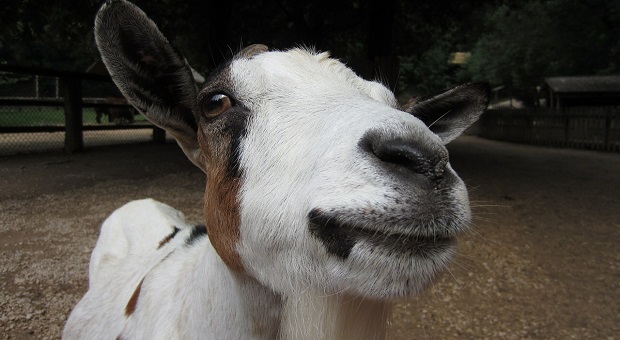
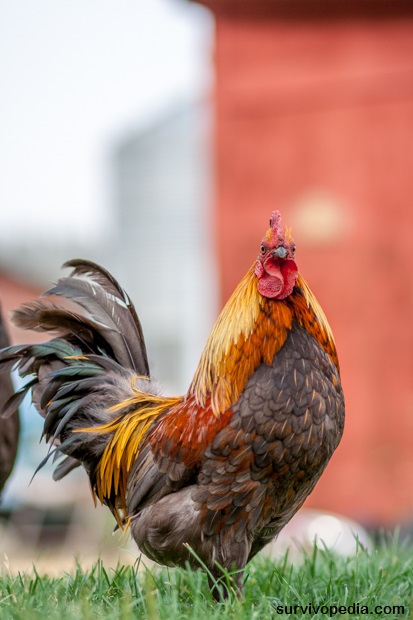
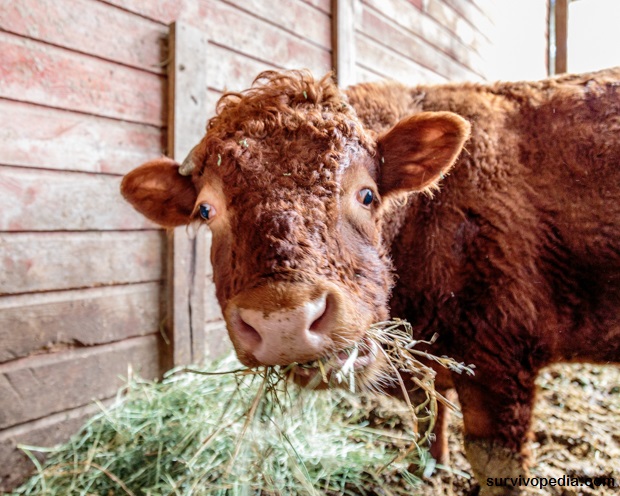
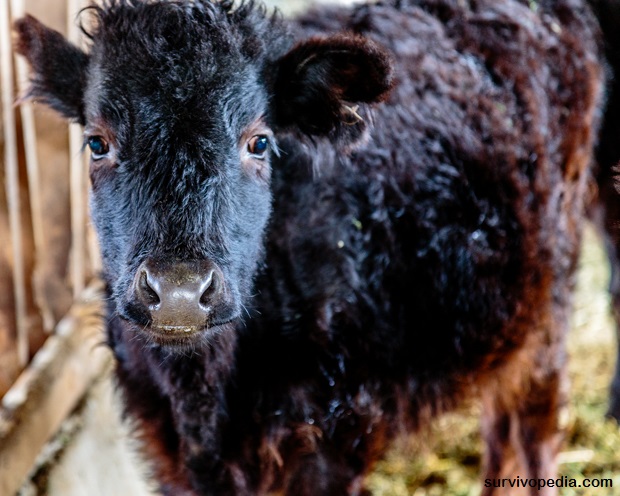
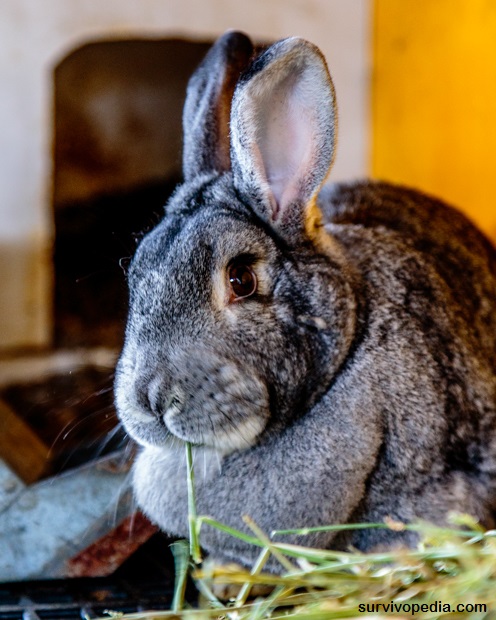
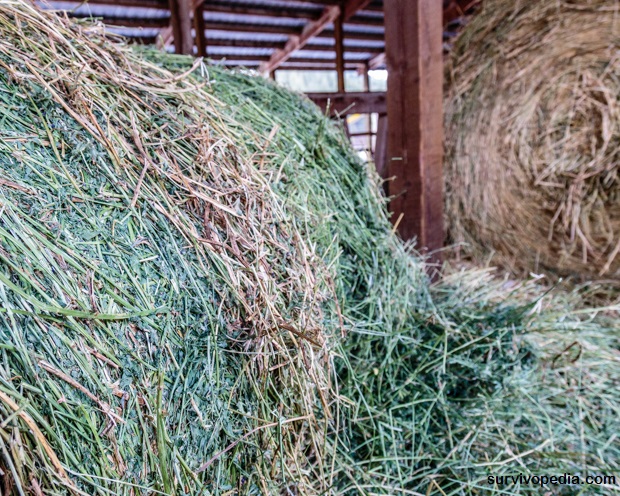
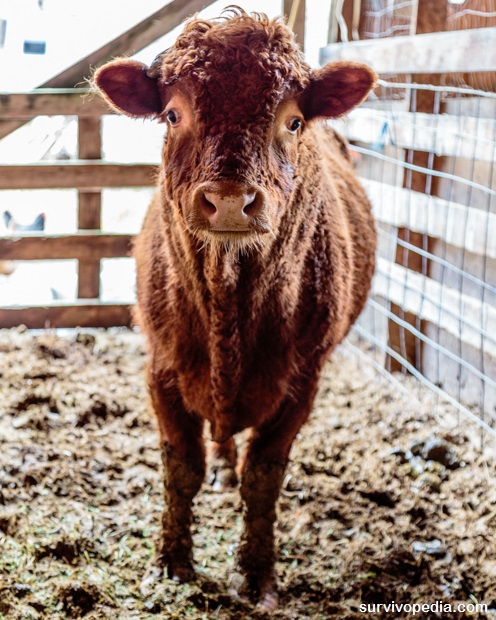

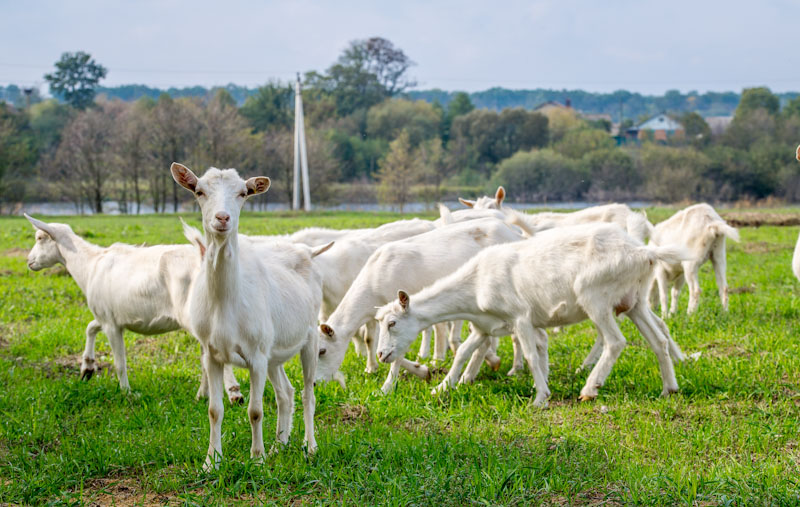
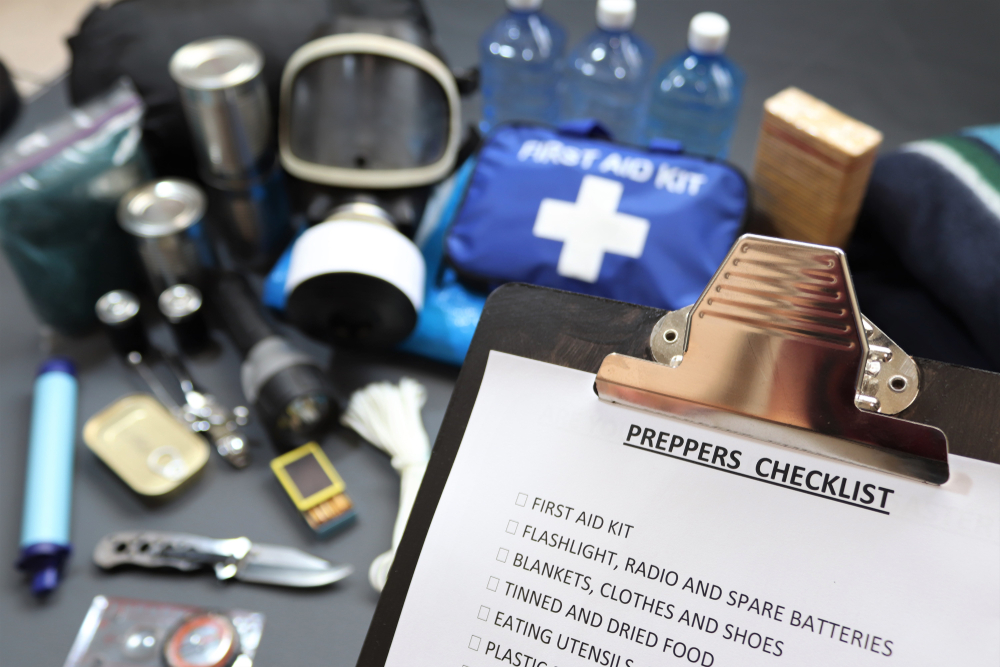
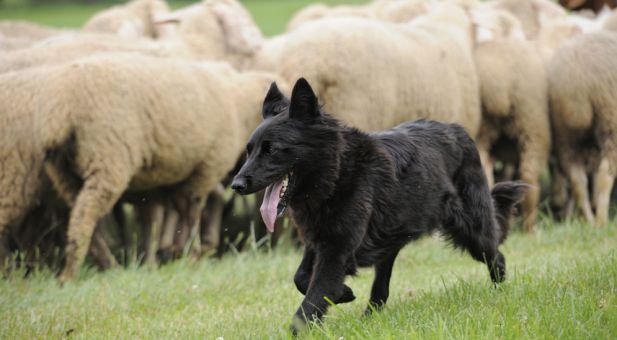


R. Hess | February 26, 2016
|
I was raised on the farm with cattle. Almost forgot all the things the family was
involved in..great article.
Jgrose3 | February 26, 2016
|
More a question ,please, lots of talk about animals,chickens, goats,rabbits, BUT not heard much or anything about pigs/hogs. Seems they multiply quickly ,Harty and they can eat anything. Any response for or against????,
Lisa | February 28, 2016
|
We usually buy a couple of weaner pigs each spring and butcher them in the fall. We love the meat, but aren’t set up yet to winter pigs so we aren’t ready to buy any breeding stock.
If you have the space and set up for them, you can always give raising them a try.
Sheryl | April 1, 2016
|
Go read this article: http://www.survivopedia.com/essentials-about-raising-pigs/?source=newsletter&tkn=dHJraWQuZDg3ODBkMzEtZmI4Ni00YWJkLWFiNDMtODc1MTYxZmZhNjBjfHNwbGl0Lnx0di58dC58Y3AuNzI4OTR8Y3B0LmVtYWlsfGNwMS58Y3AyLnxjcDMufGNwNC58Y3A1LnxwcmMufGN0LnxjdDEufGN0Mi58dGcxLnx0ZzIufHRnMy58dGc0Lnx0ZzU
Jon | February 26, 2016
|
What if we knew of a stronger healthier food that we did not need to tend to and it was every where we walked even if we had to flee the place where we had our cattle? Well we do and God showed me that the table of the lords is a garden not tended to by the hands of men that man ate from before the plow touched the earth and before the fall of Adam.
That food of gods that he sustains is now called wild foods or what we call weeds. No canning necessary here as you can hand pick it and hang it to dry for the winter and no jars to freeze and crack. No hard labor here and it’s all fre for the taking!
Bless you all!
Jonathan B.
Perdido | February 28, 2016
|
Food and Fresh Water.
Containment, protection from interlopers.
Where will you get food and fresh water?
How will you dispose of the animals waste?
Some animal waste is of no use in garden or there is so much it will have to be removed.
Pingback:12 Must Know Before Expanding Your Livestock | Bsn Global News | February 26, 2016
|
Grace | February 28, 2016
|
Thank you for the article 🙂 I have questions regarding the book, ‘The Lost Ways..’
We would very much like a hard copy (actual book, with pages and binding), but it seems like all that’s available is E-books! What good is That if we do suffer an EMP attack? I’m 100% certain that everyone else who hears about it, would also like to know if they can receive a Real paper and binding Book PLEASE.
Survivopedia | February 28, 2016
|
Grace, thank you for appreciating our content. 🙂
As for The Lost Ways, the book is being printed as we speak. 🙂
Pingback:12 Must Know Before Expanding Your Livestock | TheSurvivalPlaceBlog | March 1, 2016
|
Pingback:What You Don’t Know About Raising Pigs For Survival | Prepper's Survival Homestead | March 31, 2016
|
Pingback:What You Don't Know About Raising Pigs For Survival | Survivopedia | April 7, 2016
|
Pingback:Prepper Project: 5 Ways To Build A Chicken Incubator | Survivopedia | July 7, 2016
|
Pingback:Prepper Project: 5 Ways To Build A Chicken Incubator | Prepper's Survival Homestead | July 7, 2016
|
Pingback:Prepper Project: 5 Ways To Build A Chicken Incubator | | disasterdefense.us | July 7, 2016
|
Pingback:How Many Ways Can You Build A Water Container? | Prepper's Survival Homestead | July 8, 2016
|
Pingback:10 Problems That Kill Your Rural Survival | Survivopedia | November 11, 2016
|